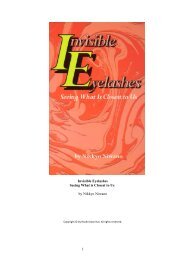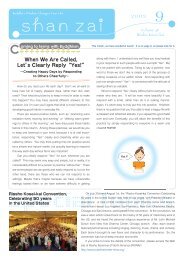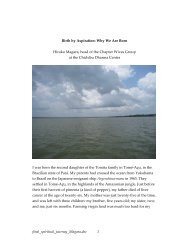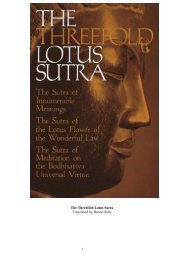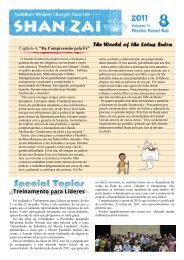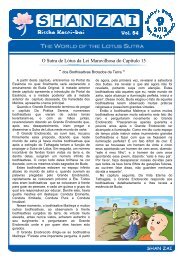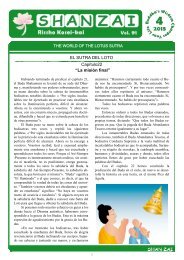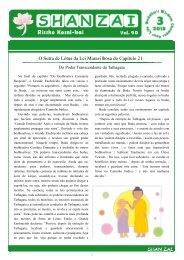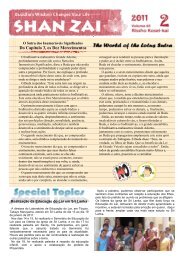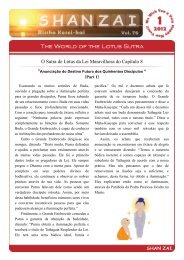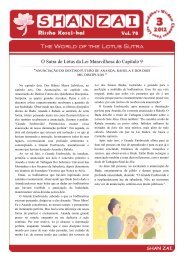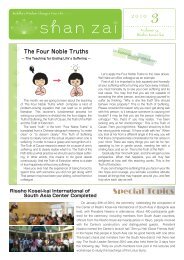1007SHAN-ZAI_English.. - Rissho Kosei-kai
1007SHAN-ZAI_English.. - Rissho Kosei-kai
1007SHAN-ZAI_English.. - Rissho Kosei-kai
You also want an ePaper? Increase the reach of your titles
YUMPU automatically turns print PDFs into web optimized ePapers that Google loves.
In the Footsteps of the Founder<br />
K a i s o - s a m a n i N a r a i t e<br />
President-designate of <strong>Rissho</strong> <strong>Kosei</strong>-<strong>kai</strong> Kosho Niwano<br />
Kaisosama<br />
ni Naraite<br />
<br />
<br />
“The most deeply fundamental repentance arises from a keenly felt recollection of<br />
the fact that we are being sustained to live by the Buddha. This recollection leads<br />
us to reevaluate what we have done and reflect, ‘I am being sustained to live by the<br />
Buddha, but have my actions been consistent with this fact?’”<br />
(Niwano Nikkyo Howa Senshu [Selected Sermons of Nikkyo Niwano],<br />
special volume, p. 158)<br />
Founder Nikkyo Niwano said, “Nothing is more precious than sincere repentance.<br />
People who can sincerely repent soon find liberation.”<br />
Repentance does not mean simply looking back on your past actions and feeling<br />
regret; it means repenting the fact that you were unable to see reality as it is, thus<br />
failing to perceive what the Buddha was expecting from you at the time. This is what<br />
repentance means for people on the Buddhist path.<br />
With true repentance, the real reason why a problem occurred becomes apparent.<br />
The real reason is not the cause of the problem but rather the purpose of the<br />
problem.<br />
“Here we are clearly told that the highest form of repentance is to perceive things<br />
as they really are—to realize the true aspect of all things.”<br />
(Shinshaku Hokke Sambu-kyo [New Commentary of the Threefold Lotus Sutra],<br />
vol. 10, p. 172)<br />
When we are unable to draw close to the Buddha is when we are seeing things in<br />
simple terms of black and white, or right and wrong. It is important for us to seek<br />
greater happiness, and try to avoid making the same mistakes over and over again.<br />
However, the world of the Lotus Sutra is not one in which we see things in terms<br />
of right or wrong, and try to change what we perceive as evil in ourselves. When we



